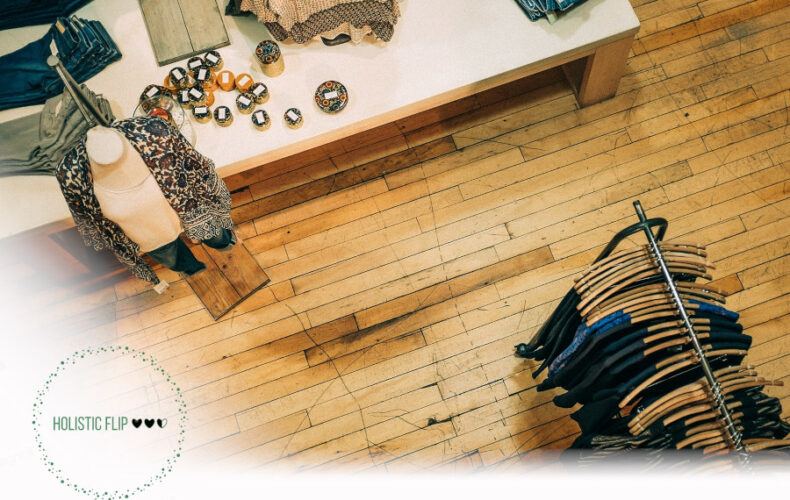Vegan Sustainable Clothing Brands
Contents:
Introduction to Vegan and Sustainable Fashion – The Importance of Ethical Clothing Choices
Understanding the Impact of the Fashion Industry on the Environment
What is the difference between vegan and sustainable clothing?
The Benefits of Choosing Vegan and Sustainable Clothing Brands
How can I be sure that a brand is truly vegan and sustainable?
Tips for Finding Affordable and Accessible Vegan and Sustainable Fashion
The Power of Community – Building a Movement

Introduction to Vegan and Sustainable Fashion – The Importance of Ethical Clothing Choices
In recent years, the fashion industry has come under scrutiny for its negative impact on the environment and animal welfare. Consumers are increasingly seeking out clothing options that align with their values, and this has given rise to the growth of vegan and sustainable fashion. This type of fashion prioritizes the use of eco-friendly and animal-free materials as well as fair labour practices. It also offers consumers a way to make a positive impact with their clothing choices.
Understanding the Impact of the Fashion Industry on the Environment
The fashion industry is one of the largest polluters in the world, accounting for roughly 10% of global greenhouse emissions and 10% of microplastics released into open waters. The production of clothing requires large amounts of water, energy and chemicals, which can result in air and water pollution, as well as soil degradation. In addition, fast fashion practices and a focus on cheap, disposable clothing has led to a culture of overconsumption and waste, with approximately £140m of clothing being sent to UK landfill annually.
The fashion industry’s impact on the environment is a critical issue that cannot be ignored, and choosing to support vegan and sustainable clothing brands is one way to help mitigate this impact and make a positive difference.
What is the difference between vegan and sustainable clothing?
Vegan and sustainable clothing are two distinct but related concepts in the fashion industry. Vegan clothing refers to garments and accessories that are made without the use of any animal products, such as leather, silk, wool and down feathers. The focus of vegan clothing is on animal welfare and avoiding products that contribute to the exploitation of animals. On the other hand, sustainable clothing refers to garments and accessories that are produced in an environmentally and socially responsible manner. This can include reducing waste, minimizing water usage, using environmentally friendly materials and ensuring fair labour practices.
In short, while vegan clothing addresses the treatment of animals, sustainable clothing addresses the impact of the fashion industry on the environment and society as a whole. Both vegan and sustainable clothing are important considerations for consumers who want to make informed and ethical purchasing decisions.
The Benefits of Choosing Vegan and Sustainable Clothing Brands
In addition to reducing the environmental impact of clothing production, there are a number of other benefits. These brands often use high-quality materials that are more durable than those used in conventional fashion, which can save consumers money in the long run. Additionally, they are often made with a focus on comfort, style and versatility, making them appealing to a wide range of consumers.
How can I be sure that a brand is truly vegan and sustainable?
As a consumer, it’s important to do your due diligence to ensure that a brand claiming to be vegan and sustainable is actually following through on those commitments. One way to verify this information is by looking for certifications from trusted organizations such as Global Organic Textile Standard (GOTS) or Fair Trade Certified. These certifications set strict standards for organic, environmentally-friendly and ethical practices in the production of clothing and textiles. Another way to confirm a brand’s commitment to sustainability is by checking its supply chain transparency. Brands that are open about where their materials come from and how they are made are more likely to be held accountable for their environmental impact and animal welfare practices. Additionally, you can research the brand’s history on sustainability to see if they have a proven track record of making conscious choices.
Tips for Finding Affordable and Accessible Vegan and Sustainable Fashion
Finding affordable and accessible vegan and sustainable fashion can sometimes feel like a daunting task. However, with a bit of research and planning, you can easily make ethical clothing choices without breaking the bank. To start, take advantage of online marketplaces and second-hand stores, where you can find gently used pieces from sustainable and vegan brands at a discounted price. Additionally, look for brands that offer sales, promotions and discounts throughout the year, or sign up for email newsletters to stay in the loop.
Another great way to save money on ethical fashion is to invest in versatile and timeless pieces that you can wear for years to come. This way, you’ll have a sustainable wardrobe that you love without sacrificing style or affordability. Additionally, consider shopping at local, small businesses and boutiques that specialize in sustainable and vegan fashion, as they often offer unique, one-of-a-kind pieces that you won’t find anywhere else.
There are many great brands on the market today offering high-quality and stylish clothing that aligns with your values. Here are the top 5 vegan and sustainable clothing brands to know:
Patagonia, the outdoor clothing and gear company, has long been a leader in sustainable and environmentally responsible business practices. The company is committed to using environmentally friendly materials in its products, such as organic cotton, recycled polyester and hemp and works to minimize its environmental footprint through initiatives like carbon offsetting and reducing waste. In addition to its environmental commitment, Patagonia is a certified B Corp, meaning it meets rigorous standards of social and environmental performance, accountability and transparency.
Stella McCartney, the luxury fashion brand is known for its commitment to animal rights and sustainable practices. The brand uses eco-friendly and sustainable materials, actively working to reduce its carbon footprint. In addition, Stella McCartney is a vocal advocate for animal rights and does not use leather, fur or skins in its clothing or accessories.
Reformation, the fashion and lifestyle brand, is focused on sustainability and environmental responsibility. The brand uses organic cotton and recycled polyester and prioritizes transparency in its supply chain to minimize its impact on the environment. Reformation is also committed to reducing waste and encourages customers to recycle their clothing.
Able, is focused on ethical and sustainable production practices. The brand uses eco-friendly materials and works with fair trade factories to ensure that its workers are treated fairly. Able also gives back to communities in need through its “one for one” model, where for every item purchased, the company donates an item to a woman in need.
Ethical Bean, the clothing and accessories brand, is committed to sustainability and ethical production practices. The brand uses organic cotton and other eco-friendly materials and works with fair trade factories to ensure that workers are treated fairly. Ethical Bean also gives back to the community through its “buy one, plant one” model, where for every item purchased, the company plants a tree in a deforested area.
These five brands are leaders in the fashion industry when it comes to sustainable and vegan practices. By choosing to support these brands, consumers can make a positive impact on the world while still looking stylish and fashionable.

The future of vegan and sustainable fashion is bright and full of opportunities for creativity and innovation. The trend towards ethical and eco-conscious fashion is growing as consumers become more aware of the impact of their clothing choices on the environment and animal welfare. As a result, the fashion industry is rapidly evolving to meet these new demands.
One trend that is gaining popularity is the use of innovative and sustainable materials such as recycled plastics, organic cotton and plant-based fibres. Brands are also turning to closed-loop systems where they can recycle and reuse their materials, reducing waste and their carbon footprint. Additionally, technology is playing a big role in the future of sustainable fashion. Brands are investing in digital tools that help track their supply chains, minimize waste and enhance transparency for consumers.
Another trend is the rise of circular fashion, where clothing is designed to be repaired, reused, and recycled instead of ending up in landfills. Brands are also focusing on the longevity of their products, creating clothing that is made to last and withstand wear and tear.
The use of digital technology is transforming the way we shop for clothes. Virtual try-ons, augmented reality and online marketplaces that specialize in sustainable fashion are becoming increasingly popular.
The Power of Community – Building a Movement
The fashion industry is a global one, and it can be difficult for individuals to make a difference on their own. However, the power of community can bring about significant change. By coming together, consumers can push for more ethical and sustainable practices in the fashion industry and help to create a brighter future for both people and the planet.
One of the key ways that communities can make a difference is through advocacy. By spreading awareness about the issues facing the fashion industry, such as worker exploitation, toxic chemicals and environmental degradation. Consumers can encourage others to join the movement and make more conscious choices. Sharing information, participating in demonstrations and joining campaigns are all ways that consumers can get involved and help create a more ethical and sustainable fashion industry.
Communities can also support and promote independent, local and small-scale businesses that focus on ethical and sustainable practices. By choosing to shop with these businesses, consumers can help to create a demand for more environmentally friendly and socially responsible products, which can ultimately lead to larger brands adopting more sustainable practices.
The issues at stake are global and complex. By working together, individuals can pool their resources, knowledge and influence to bring about real change, and create a better future for everyone. Whether it’s through advocacy, supporting local businesses or by simply spreading the word, every action taken can make a difference and help to build a movement for a more ethical and sustainable fashion industry.

